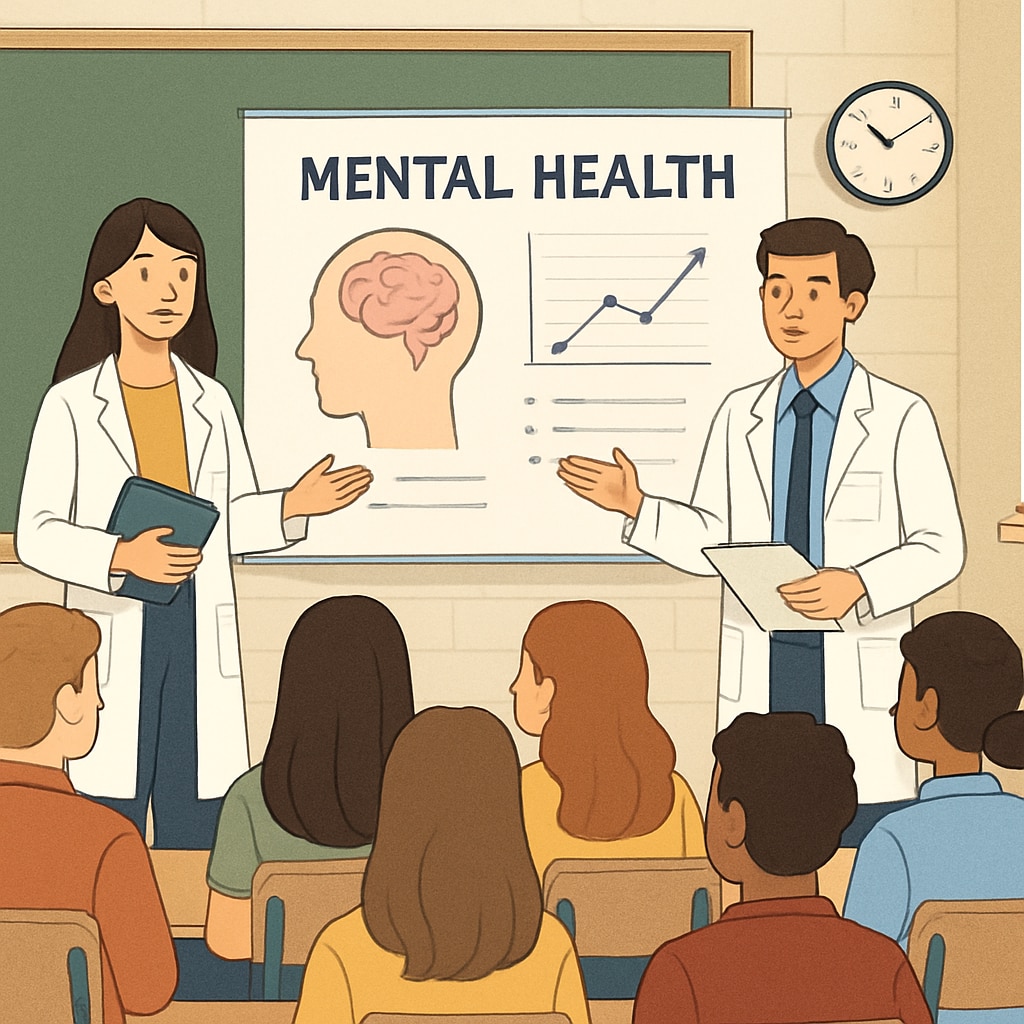The importance of mental health among high school students has become a growing concern globally. Organizing seminars on mental health, led by medical students, offers an impactful way to address these concerns during school assemblies. This article provides a practical guide for medical students to initiate, structure, and evaluate mental health seminars aimed at fostering emotional resilience among teenagers.
Step 1: Establishing Collaboration with Schools
Effective communication is essential to gain the support of high schools for mental health seminars. Begin by reaching out to school administrators or counselors to propose the idea. Highlight the importance of mental health education and the benefits for students, such as reducing stress and improving emotional awareness.
- Prepare a professional presentation that outlines seminar objectives, methods, and expected outcomes.
- Address logistical aspects: venue, timing, and the involvement of faculty members.
- Ensure alignment with the school’s curriculum or extracurricular schedule.
Learn more about mental health on Britannica.

Step 2: Designing Engaging and Informative Content
The content of the seminar should be tailored to the specific needs and challenges faced by high school students. Focus on creating interactive and relatable presentations that resonate with the audience.
- Include topics such as stress management, coping strategies, and recognizing signs of mental health issues.
- Integrate multimedia elements like videos, slides, and role-playing activities to maintain engagement.
- Use accessible language while introducing key psychological concepts.
For example, the World Health Organization offers excellent resources on adolescent mental health.

Step 3: Conducting the Seminar
On the day of the seminar, ensure smooth execution by focusing on the following:
- Begin with an icebreaker to establish a comfortable atmosphere.
- Encourage active participation through Q&A sessions and group discussions.
- Provide handouts or digital resources for future reference.
Moreover, consider inviting guest speakers, such as psychologists or school counselors, to share their insights and experiences.
Step 4: Evaluating Impact and Gathering Feedback
Evaluation is crucial to understanding the effectiveness of the seminar and identifying areas for improvement. Distribute feedback forms to students and educators to collect their perspectives.
- Ask questions about the relevance, clarity, and engagement of the seminar.
- Monitor changes in students’ attitudes or behaviors over time.
- Use the feedback to refine future seminars and expand outreach efforts.
As a result, medical students can contribute significantly to promoting mental health awareness while enhancing their own understanding of youth psychology.
Readability guidance: Use short paragraphs and lists to summarize key points; maintain an active voice; incorporate transitional words such as “however,” “therefore,” and “for example” to ensure flow and coherence.


